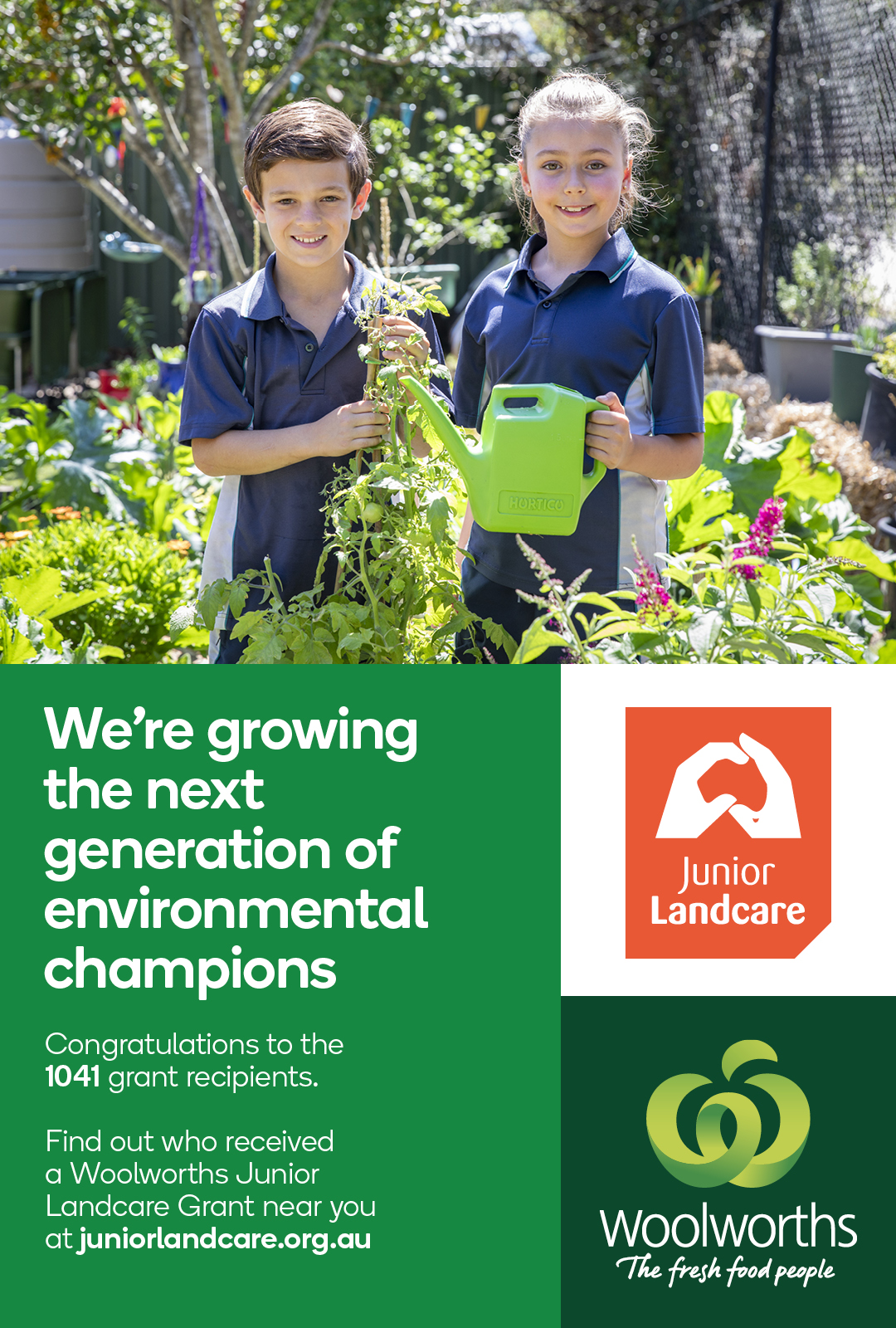News

By Narelle Debenham, Natured Kids Junior Landcare
Beneficial bugs play a critical role in contributing to a healthy ecosystem by pollinating our food and flowers, controlling pests and preventing pollution. Insects can also help keep our soil healthy, control weeds and are food for other insects and animals like lizards, frogs and birds. Construction of this educational “Arthro-POD” involved many groups and afforded the opportunity for members of the Frankton High School (FHS) Eco team to support a diverse range of local insects by providing food, shelter and habitat.
This project aimed to identify the important role insects such as bees, beetles, butterflies, moths, flies, wasps and ants play in our world while increasing student’s knowledge of these handy helpers in the ecosystem services they provide.
Students participated in the 2019 Australian Wild Pollinator Count as citizen scientists to survey the presence of important insects prior to our planting project commencing. Only a few ants and one fly were observed.
A further survey will be conducted once the garden grows in spring, to assess any increase in the prevalence of insects and compare results evidencing potential change in species and numbers. The beneficial bugs that move in will be regularly monitored by students as part of Australia’s future Wild Pollinator Count projects.
We hope that young people’s observations of the insectory garden, will help them witness first hand the important roles that insects play in nature as predators for pest control, as pollinators and pollution controllers while discovering the complex symbiotic relationships needed for a healthy natural ecosystem.
Did you know certain plants attract particular butterflies? For example, Common Grass Blue butterflies love native lilac and the Common Imperial Blue live only on saplings of Acacias while the larvae of Skipper butterflies feed on Lomandra leaves, other native grasses like Saw-Sedges provide the first food for the Sword Grass Brown Butterfly.
It is hoped students will witness much about the life-cycle of both insects and plants via seed-saving and observing the regeneration of native grasses in their insectory garden throughout the seasons.
You might ask why we need to create habitat for insects? As humans, we are really good at raking up and placing in the green bin, the habitat they require to survive.
Scientific reports also evidence a catastrophic collapse of insects over the past decades, with dire consequences for crop pollination and our natural food chains. 41% of our insects are declining, among those, a third are heading in to extinction due to habitat loss, pollution, pesticides & fertilisers, introduced species and climate change (The Guardian 2019). Insects play important roles, their loss threatens an imbalanced natural ecosystem. It is anticipated that the students actions to create this garden, will impact local insect species, increase their numbers and survival and in doing so, support our food system and human health.
Our young FHS students have been empowered to help create environmental change for good. This project is amazing because it has provided the forum to turn intent in to action and is a very positive way our students have contributed to providing healthy environments for arthropods.
Eco students from FHS encourage the whole school, wider community and all residents on the Mornington Peninsula to learn about how they can implement small changes in their home and gardens to boost and support our beneficial insects. Creating such insectories, will multiply suitable habitat on a large scale locally and positively increase provision of green urban corridors for our littlest wildlife.
 Teachers & Educators
Teachers & Educators Youth or Community Groups
Youth or Community Groups
0 Comments